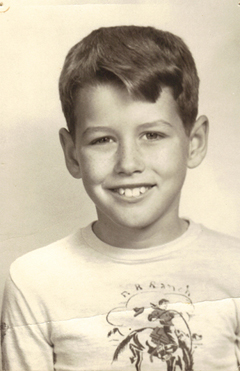In my opinion, opposition to the Atlantic Pact ought to be the main criterion of a left policy. I would even say that the only point in common between the abstract position of de Gaulle and what ought to be the attitude of the left, is the demand for national sovereignty. Sovereignty must be won back, not in order to defend it jealously--it would be possible to associate with other similarly sovereign countries and to set up international organizations to which certain powers could be surrendered--but in order to oppose it to American imperialism which is everywhere breaking down national structures.
Let us suppose that the left was united: what could it do in effective terms about Vietnam?
It could in the first place mobilize public opinion. It is not easy, but there are some countries where it has been achieved. In France, a strike of any size, unleashed in connection with economic objectives, but whose real motive was opposition to American policy in Vietnam, is inconceivable. In Japan--where I was recently--there was, on the October 21st, a general strike "against American imperialism'. I don't say that it was a total success, but it took place.
The French too, of course, are "against' the Vietnam war, but they don't feel it concerns them. They don't realize that they are in danger of being dragged into a world conflict by the development of a struggle which serves the interests of the Americans alone. De Gaulle, for his part, does realize this. I was very struck by the reaction of the Japanese to his Phnom-Penh speech. They said: "De Gaulle was afraid.' They meant that he had suddenly come to appreciate the danger of seeing his country destroyed for something which does not concern her. It was, in fact, a speech dictated by fear, and from that point of view a good speech. But a simple cry of alarm is of no great use.
We must visualize our struggle, today, in the context of a durable American hegemony. The world is not dominated by two great powers, but by one. Peaceful coexistence, despite its very positive aspects, serves the interests of the United States. It is thanks to peaceful coexistence and to the Sino-Soviet conflict--the latter resulting to a great extent from the former--that the Americans are able to bomb Vietnam undisturbed. The socialist camp has, unquestionably, suffered a reverse as a result of the rivalries and of the policies set in motion by Khrushchev. So much so that the Americans today feel that they have a free hand, to the point where President Johnson hinted in a recent speech that he would not permit the Chinese to develop their nuclear strength beyond a certain point. This horrifying and cynical threat could not have been made if Johnson had been certain that the ussr would come to China's assistance.
This present hegemony of the United States does not, however, exclude a certain vulnerability. In default of a direct confrontation with the socialist camp--too seriously divided--the solution could come from the weariness of the mass of Americans and from the disquiet of Washington's leaders at the growing disapproval of the entire world, and in particular of all their allies.
Do you think that actions like that of David Mitchell, the young American who refused to serve in Vietnam, invoking the Nurenburg laws, could contribute to a prise de conscience on the part of the Americans?
It is precisely from the action of David Mitchell and of others that the idea of our tribunal sprang. Our inquiry, if it concludes that the United States is guilty, should allow all the young who are combating Johnson's policy to invoke, not only the laws of Nurenburg but also the judgment of a number of free men who do not represent any power, or any party. It is much better that we do not represent anything. For the neo-Nazis, the Nurenburg decisions were invalid because they were delivered by victors whose law was founded on their power. We, on the contrary, hold no mandate from any power whatsoever, and nobody will be able to say that we impose our law on people whom we hold beneath our boot. We are independent because we are weak. And our position is strong because we do not seek to send a few individuals to prison, but to reawaken in public opinion, at an ominous moment of our history, the idea that there can be policies which are objectively and legally criminal.
-
(This interview appeared in the Jan-Feb, 1967, issue, of The New Left Review, pages 3-20 - GR)
-
(Note: You can view every article as one long page if you sign up as an Advocate Member, or higher).





